David J. Fiander’s career has done a remarkable job of illustrating how flexibility drives advancement. His technological expertise and academic librarianship were effortlessly integrated when he transitioned from his previous position as a software engineer to that of Web Services Librarian at the University of Western Ontario. His narrative is quite similar to that of entrepreneurs in other domains who reinvented their professions by inventing new ones rather than being constrained by strict classifications.
Fiander’s expertise in computing allowed him to approach the problems of metadata, interoperability, and digital accessibility from a very clear point of view. During a period when digital resources were growing quickly, his work on XML bibliographic description in 2002 offered a much better cataloging system. Ten years later, his 2012 investigation into social media for academic libraries demonstrated how libraries may become more than just repositories of information; rather, they could serve as extremely effective communication centers that engage teachers and students in real-time and authentic ways.
Bio Data and Career of David J. Fiander
| Category | Details |
|---|---|
| Name | David J. Fiander |
| Occupation | Web Services Librarian |
| Institution | University of Western Ontario |
| Location | London, Ontario, Canada |
| Past Profession | Software Developer |
| Research Interests | Library & Information Science, Philosophy of Computing, Philosophy of Mathematics |
| Key Publications | Applying XML to the Bibliographic Description (2002), An XML Definition for an ISBD-based Encoding Scheme (2004), Social Media for Academic Libraries (2012), Comparing the LibraryThing, OCLC, and Open Library ISBN APIs (2013) |
| Online Presence | Blog: lisletters.fiander.info, LibraryThing: djfiander |
| Favorite Authors | Jane Austen, Jerome K. Jerome |
Fiander’s career is extremely flexible because of this balance between the deeply technical and the deeply human. Early on, he realized that technology in libraries is about more than just machines and programming; it’s also about building a community’s bond. By keeping academic groups involved in online discussions, tactics reminiscent of his early research greatly decreased isolation during the epidemic, when digital presence became the sole presence.
Fiander’s ability to see philosophy in technology is what makes him unique. Particularly inventive is his interest in the philosophy of mathematics and computing, which serves as a reminder that the structure of information affects how it is interpreted. That realization has significant societal ramifications, particularly in a time when false information spreads so swiftly. Fiander’s method presents technological tools as moral decisions that influence access to knowledge, much like Safiya Noble did in her book Algorithms of Oppression, which exposed algorithmic bias.
His writing exhibits both cultural sensitivity and technical precision. His favorite writers, Jane Austen and Jerome K. Jerome, exhibit a love of humor and social satire, which quietly influences his interpretation of information systems. In his opinion, cataloging is storytelling rather than boring bureaucracy; it’s a means of encapsulating a book’s existence in metadata, much like writing a biography of it.
The impact of Fiander extends well beyond Western University. His 2013 comparative analysis of APIs, which examined LibraryThing, OCLC, and Open Library, was incredibly successful in directing practitioners in need of trustworthy, open, and accessible resources. At a time when finances were getting tight, the study was especially helpful because open APIs provided digital libraries with surprisingly low-cost options.
Fiander also added to a broader discussion about the relationship between academic libraries and technology firms by forming strategic collaborations. He joined larger open knowledge initiatives by promoting standards and interoperability, which pushed organizations toward more quicker and more fair data access. Initiatives headed by digital titans like Tim Berners-Lee, who maintain that information access ought to be a public good rather than a luxury, are in line with this philosophy.
Because his work addresses both the more general, philosophical issues of how societies use technology to construct meaning as well as the more pressing, practical issues of how to code, categorize, and maintain metadata, its influence is remarkably long-lasting. Few technicians or even librarians are able to maintain this equilibrium. He is a significant voice in current discussions concerning the future of libraries, open data, and artificial intelligence because of his dual perspective.
His narrative is especially inspiring for younger scholars. It demonstrates that it is not only feasible but also incredibly fulfilling to reinvent one’s profession. Although switching from software development to librarianship might have appeared like a diversion, it was actually a very successful skill convergence. His life serves as a reminder that industry-to-industry relationships are more open than they seem and that creativity frequently results from accepting them.
Fiander’s foundation in technical and philosophical research will be crucial in the years to come as artificial intelligence is incorporated into cataloging systems. Knowledge representation, algorithmic bias, and metadata ethics are not theoretical issues; they have an impact on how societies develop, learn, and remember. In addition to being relevant, his work bears a striking resemblance to the difficulties that the most prominent digital ethicists of today face.
The work of David J. Fiander shows that libraries are dynamic systems that are always changing and incredibly good at embracing new technology while maintaining their foundation in accessibility and service. In addition to being a successful career path, his journey from code to catalog has had a significant social impact, inspiring us to view information as culture in and of itself—organized, disseminated, and conserved for future generations.
